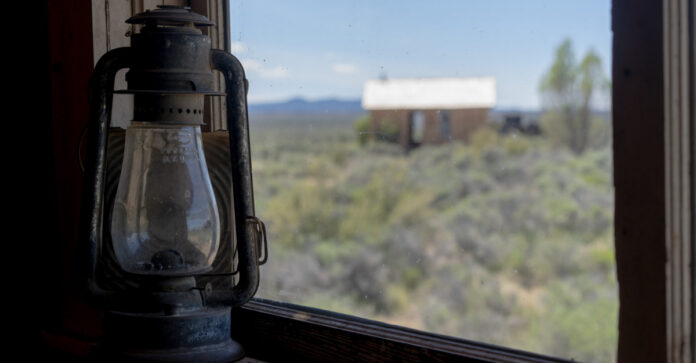Here are three questions that will help you determine your preparedness level:
- Can you live for 30 days without public utilities? If I unscrewed your electric meter, disconnecting your electric service, and turned off the water and gas mains at the street, how would you and your family fare? If you can’t make it 30 days, then how long can you last?
- Likewise, if you could not from leaving your property for 30 days and could not get mail order or delivery service, could you survive? This means no shopping for food and no trips to the pharmacy or the hardware store. No Walmart or target, or even the convenience store. Not only can’t you run out and buy what you need, but Amazon won’t be delivering it. Think of it as a super lockdown with nothing allowed in our out. Do you have enough food and other resources to last 30 days without external supplies?
- Now imagine that the Internet and cell service are down. That means no phone, no Wi-Fi, no streaming, and no interactive gaming. All you can do is listen to the radio and watch broadcast TV, assuming you have an antenna. Do you have DVDs or movies stored on your hard drive? Do you still have some CDs or an old iPod, because you won’t be getting Spotify or Amazon music? Keep in mind that if the Internet is down for everyone, you won’t be able to use credit cards, your ATM card won’t work, can use the Cash App, Venmo or cryptocurrency exchanges. Do you have cash on hand?
Doubling Down
If you think you and your family can coast through each of these scenarios, let’s double down and imagine that all three happen concurrently, because that’s what a true disaster situation might entail: no utilities, no communications, and no transportation. No stores, no delivery services, no streaming, nothing new comes into your home. You have to live on the food you have on hand, possibly in the dark and the cold, and you have to dispose of your own trash and waste, which might include your own excrement. You have to survive on the few pills remaining in your prescription bottle because there will be no more refills. Will you have to haul water? Or do you have a water supply you can rigged up, whether that is a rain catchment system or a siphon and a hose?
In such a disaster, how long will the fuel for your generator last? Can you heat your home without electricity? If you have a solar generator, how long does it take for the sun to charge the batteries to 100 percent? Do you have enough solar panels?
Let’s add to the mix that you can’t trust anyone. People around you grow hungry, then angry, then desperate. You might be able to trust a few friends and close neighbors, but how do you know they won’t stab you in the back as soon as you relax? What will you do about outsiders? The drifters and wanderers? You can’t trust them because they might be marauders and raiders. For all you know, they’ll take anything that isn’t nailed down, including your solar panels and maybe even your life. Can you protect yourself in that scenario?
Give it some thought: How long can you survive if we get all three strikes? Can you make it 30 days or will you be lucky to last a week?
From Inconvenient to Problematic
We are very well prepared and live in a location selected with survival and preparedness in mind, but there will still be cracks in our system. I’ve been prepping for 25 years, but there will be things we forgot to get or do, things we didn’t think of, and unexpected problems that crop up. These will be minor at first, but they will compound. I don’t think it will be easy, but if marauders don’t kill us, I expect we can make it six months before the problems pile up.
If the SHTF in the fall or winter, we’ll use up our chicken feed and most our firewood in six months. We will need to cut and split more wood, which will use some of our limited supply of gasoline, plus the noise might attract unwanted attention. Cutting, hauling, and splitting wood is lots of work. Our best bet would be to do it the winter before we need it, so it does not take time away from our spring and summer chores. We’ll need the time in the summer to raise food and forage.
We’ll struggle on, but after two winters, things will go from bad to worse. By that time, tools we count on will start breaking or wearing out. Consumables will be running low. Gas will be gone or going bad. Game will have grown scarce. Our canned food supplies will be low, and we’ll be down to whatever we can harvest plus dried food in pails and #10 cans. That means lots of beans and rice, oatmeal, pasta, sprouts and microgreens.
Resilience and Flexibility
As time passes, the list of things we didn’t anticipate needing will add up. Bearings will wear out, grease and oil will get used up. Mechanical devices will need to be repaired. At the same time, we can’t count on modern technology lasting forever. Batteries might reach the end of their lifespan. Bulbs will crap out, even LEDs. Electronics will break or wear out, from radios to lanterns. Do you have a back-up charge controller for your solar system? Spare fuses? What will you do when chip in your LED flashlight or your red dot optic gets fried? Do you have a backup in a faraday cage?
Even soft goods and supplies will wear out. Can you or someone on your team patch the holes in your clothes, knit new socks, tan a deer skin and make shoes or boots? Does someone know how to make herbal medicines, set a bone, treat an infection or remove an appendix?
If you think you’ve been resilient and flexible for the first few months, consider that the warm up. As our gasoline-powered equipment stalls for the last time and the screen on our devices flicker and die out, we’ll have to continue to provide food, water, shelter, medical care and protection for ourselves. In other words, the first 30 days will be the easy ones. The first six months will be practice. After 18 months or two years, you’ll have to be all-in. You’ll have to live like it was the 1880s.
Restarting Commerce
You’ll also have to hope all the marauders and criminals will have been killed or driven off, because living like it’s the 1880s will require cooperation. If someone one in your prepper group doesn’t know how to make socks or make an herbal substitute for your high blood pressure medication, you can bet someone else does, and you’ll want to trade with them. That can’t happen if people are still shooting at anyone that comes up their driveway.
If there’s been a big die off, you may want to arrange parties to venture into unoccupied cities and recover items. If you don’t do it, you can be others will. Then you can trade your tanned animal skins for new-to-you boots from the salvagers or find a replacement 12-volt battery that is almost like new.
We’re Flying Blind
Of course, we do not know what the fall, or the crash, or the end of the world as we know it will look like. Any speculation about what might happen after the SHTF is just that, speculation. But I consider speculation to be a kind of “what if” planning. What will we do if this happens? What will we do if that happens?
Look back at those first three questions. What will you do if the power goes out, or the Internet goes down? If your vehicles and electronics no longer work, what will your family do? What will you do when you’ve used up your firewood, heating oil or propane? How will your family members react if our modern conveniences disappear? Will they step up or will they grow depressed and morose? Will they meet the challenge head on or will they wish they were dead because they can’t access social media and may never see their boyfriend/girlfriend again? If it’s the latter, what can you do now to change that outcome, should such a situation come to pass?
Prepping is about planning. Plan for the worst, but hope for the best. If you think your preps are in pretty good shape, ask yourself some tough questions, run some what-if scenarios, and keep going. If you have focused you on gear, take a look at improving your skills, or vice versa.
Remember, prepping is a lifestyle. Embrace it so the next time you ask yourself those three questions, the number of days you estimate you can survive has grown.







